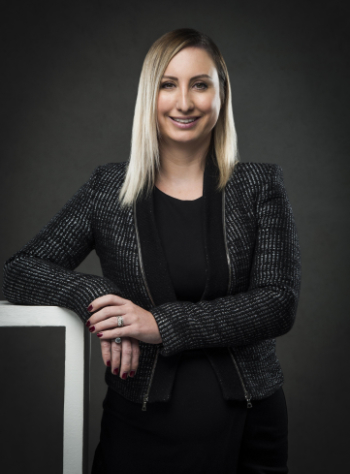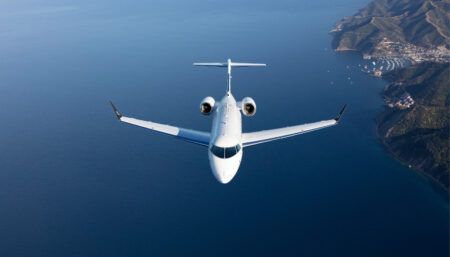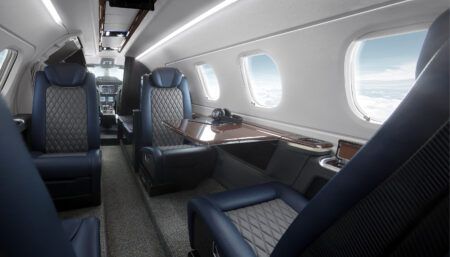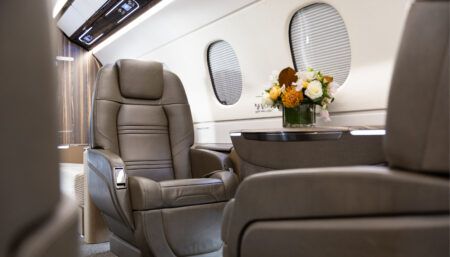 Switzerland-headquartered charter specialist Vertis Aviation expects changing social attitudes, environmental concerns and technological advancements to impact the charter market over the next decade, leading to the development of new operating models.
Switzerland-headquartered charter specialist Vertis Aviation expects changing social attitudes, environmental concerns and technological advancements to impact the charter market over the next decade, leading to the development of new operating models.
Catherine Buchanan, chief operating officer, states a combination of major influences could potentially transform business aviation charter operations into a more efficient and operationally sustainable model. Vertis says its profitability grew in 2019 as it enhanced its global charter offering with a new US presence, expanded its charter team and ramped up its third-party sales offering via the Vertis Charter Management Programme. Buchanan is now assessing what will affect charter activity in the next decade.
Vertis has seen an upward trend in requests and booking of shared charters and empty legs, and Buchanan believes this will continue. “The digital native generation are our next set of customers,” she says. “They are empowered by technology, which makes them a far more informed demographic than ever before. Digital know-how strengthens their abilities to source empty legs, join membership organisations that offer shared charter options, and increases willingness to share information to better fulfil their travel needs. This will significantly affect the way they book charters.”
Vertis has noted that since launching the Vertis Aviation App, which enables users to book individual executive jet seats, source near-real-time charter flight information and access empty leg data, requests for flights from this demographic have grown.
Climate change will also be a big driver in charter behaviour, says Buchanan. The number of ‘green’ programmes is increasing and charter customers will increasingly demand means of mitigating their impact. Vertis believes that charter companies and brokers developing sustainable, long-term options to satisfy this requirement will win out. “Vertis Aviation will be launching a green campaign this year to encourage existing customers to consider the impact their travel has on the planet and attract new environmentally conscious customers to the business,” says Buchanan. “We know that the captains of industry will continue to need to optimise the benefits of executive aviation, and we also recognise there is a need for them to lead the way in reducing carbon impact. What requires change from one generation will be the norm of the next.”
Vertis says advancement in technology will be another key transformer of the charter experience. It contends that the amount of data aggregated, stored and analysed by automated systems will continue to grow, and improved methods of data analysis will keep charter brokers and operators more informed about customer behaviour. Digitised aviation supporting the Internet of Things will also see aircraft better prepared for each passenger as suppliers are automatically informed of requirements for the next leg. “This will enhance the charter experience across the whole value chain as suppliers, operators and brokers better satisfy customer needs,” says Buchanan.
She also expects that vehicles yet to be developed will change the charter model. “We currently charter business jets from airport to airport, but looking to the next decade I can imagine we’ll be chartering a pilotless eVTOL machine to transport customers directly from their home or office to airside, where a hybrid-powered aircraft will fly shorter journeys, or a jet powered by sustainable aviation fuel will support longer missions,” says Buchanan. “We are eagerly awaiting the day we can charter a hypersonic aircraft to conduct a multi-leg journey in one day too. We’ll all be keeping a close eye on what will take off through the next decade; it’s going to be one of diversity for sure.”





